The rise of artificial intelligence (AI) has brought a tidal wave of potential applications across a vast range of fields, from healthcare to finance, education to entertainment. One area that is ripe for exploration is the intersection of AI and gaming; specifically, wargaming and tabletop role-playing games (RPGs) like Dungeons & Dragons (DND).
In this article, I take a deeper look into some amazing ways I think AI can enhance (or disrupt) tabletop wargaming and RPGs.
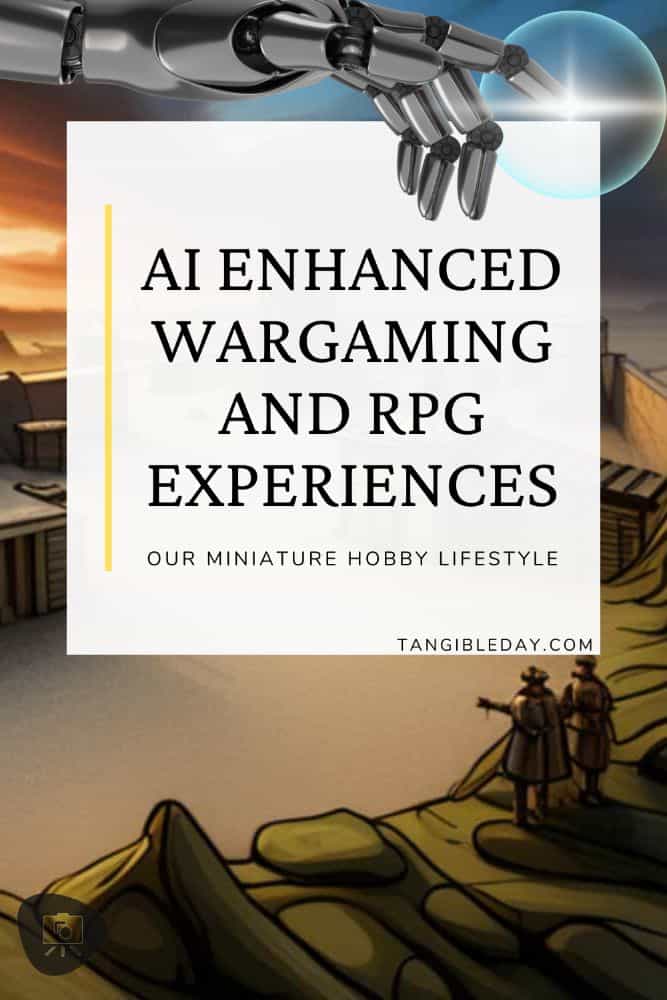
As someone who loves to tinker with new things, the advent of ChatGPT and other creator-supportive AI models, e.g., ChatGPT, MidJourney, and Dall-E, has made my life busy with endless veins of discovery, indeed.
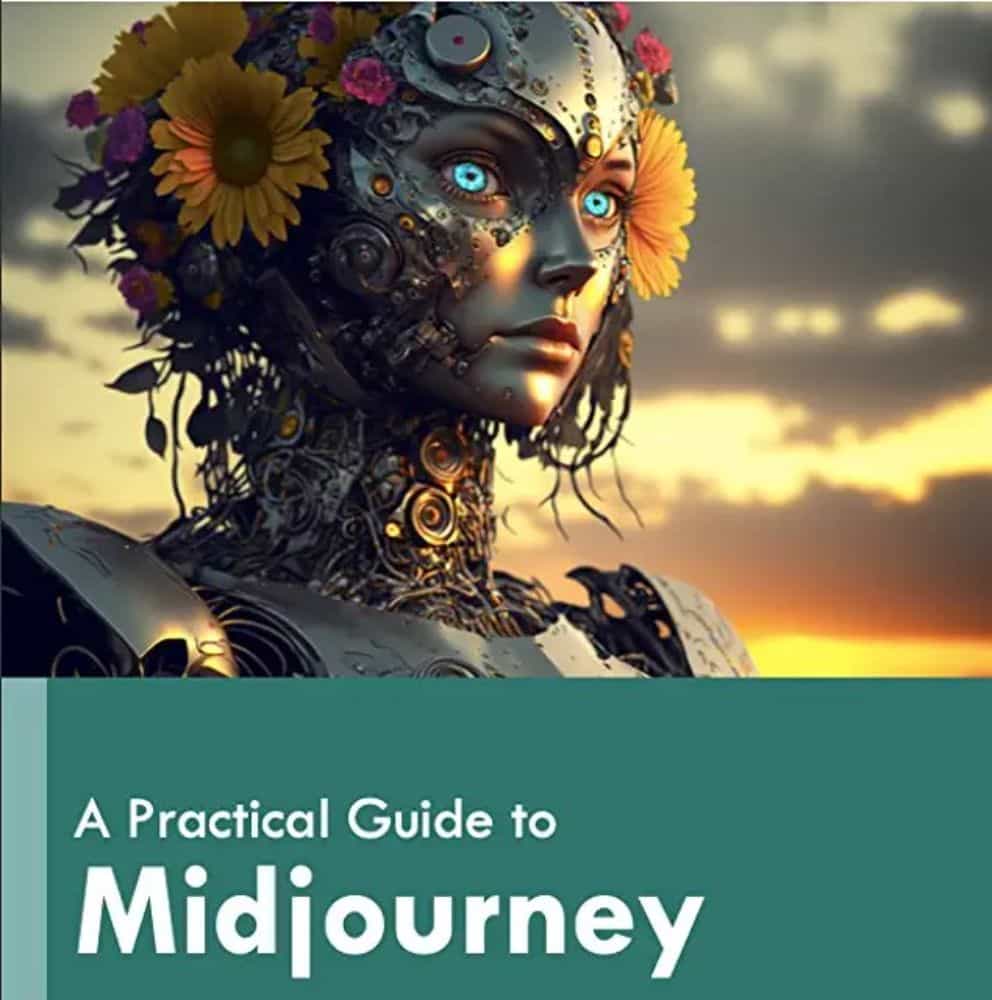
Are you curious about how AI could change your hobby? Psssh, maybe you’re a hipster who doesn’t know where they belong just yet. Well, let’s read on!
ChatGPT and AI in Miniature Wargaming and Tabletop Roleplaying Games
I’ll start at the top. You should probably know where I’m speaking from in regard to what I mean by artificial intelligence (AI). AI technology has been around for decades (source).
Of course, the most popular at the moment is AI, like OpenAI’s ChatGPT, which is a machine learning model trained on vast amounts of text data (also known as a “large language model”).
ChatGTP has taken over the World–or at least it may feel that way if you follow the news–because it can generate text that is coherent, contextually relevant, and surprisingly creative in a very human-like way.
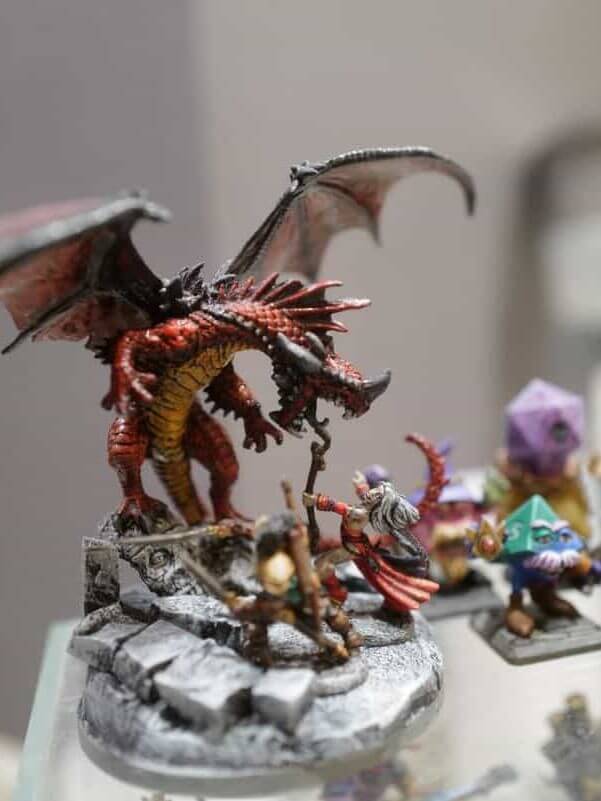
Importantly, I would probably say right now that ChatGPT is one of the most versatile AI models because of its versatility. It’s been used to write everything from poetry to technical manuals.
To the point of this article, ChatGPT is slowly making it’s way into the tabletop gaming realm. I’ve already written about how this AI model may help you with your miniature painting.
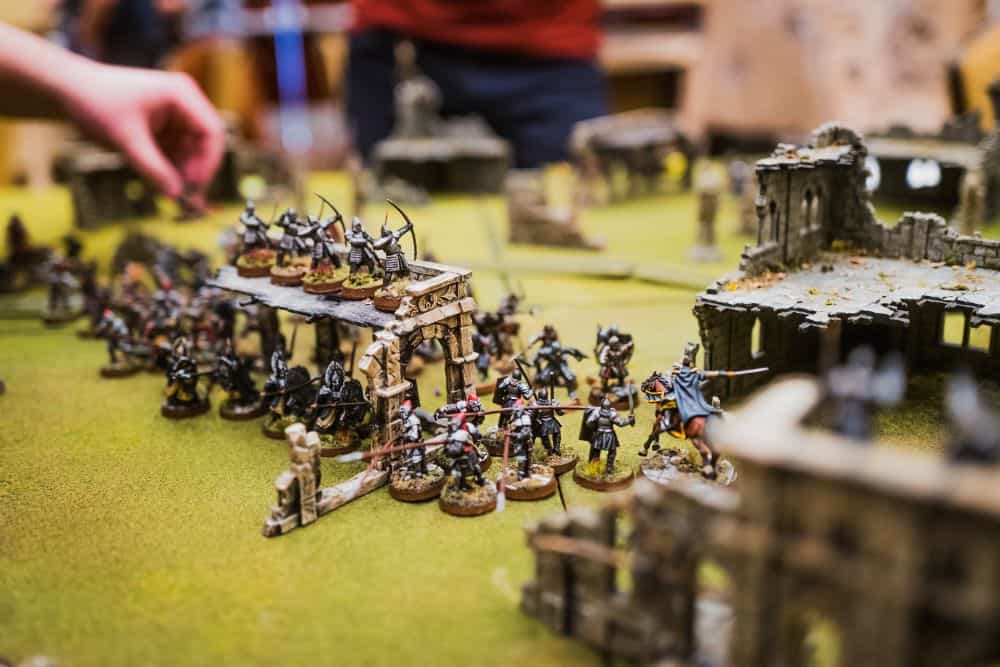
But, when it comes to the potential for tapping the power of AI in tabletop miniature gaming, I think it remains largely untapped.
Right Off the Top of My Head!
Imagine this… A game master (GM) who never tires, complains, and improvises at the speed of light. Maybe you need to create characters? Well, AI gives you special powers to access an infinite number of potential backstories.
If you love world-building, bounce ideas off an interactive AI model, nurture your creative sparks, and manifest them into reality.
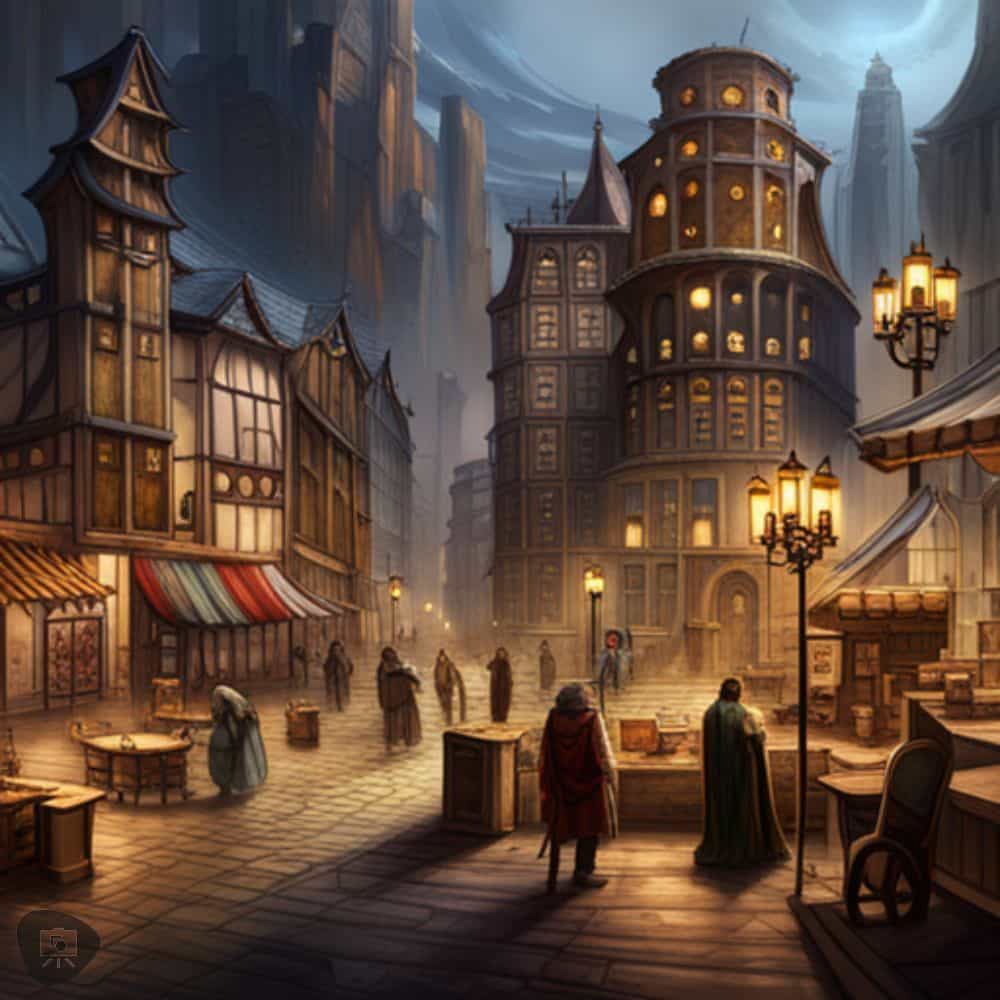
Use AI to fine-tune the mechanics of how things relate to each other in a world limited only by the (always-expanding) boundaries of the AI’s training data.
And, the list of things goes on. Here are more ways that ChatGPT and AI can affect your love for gaming. Even this popular Fantasy Flight board game has embraced digital technology…
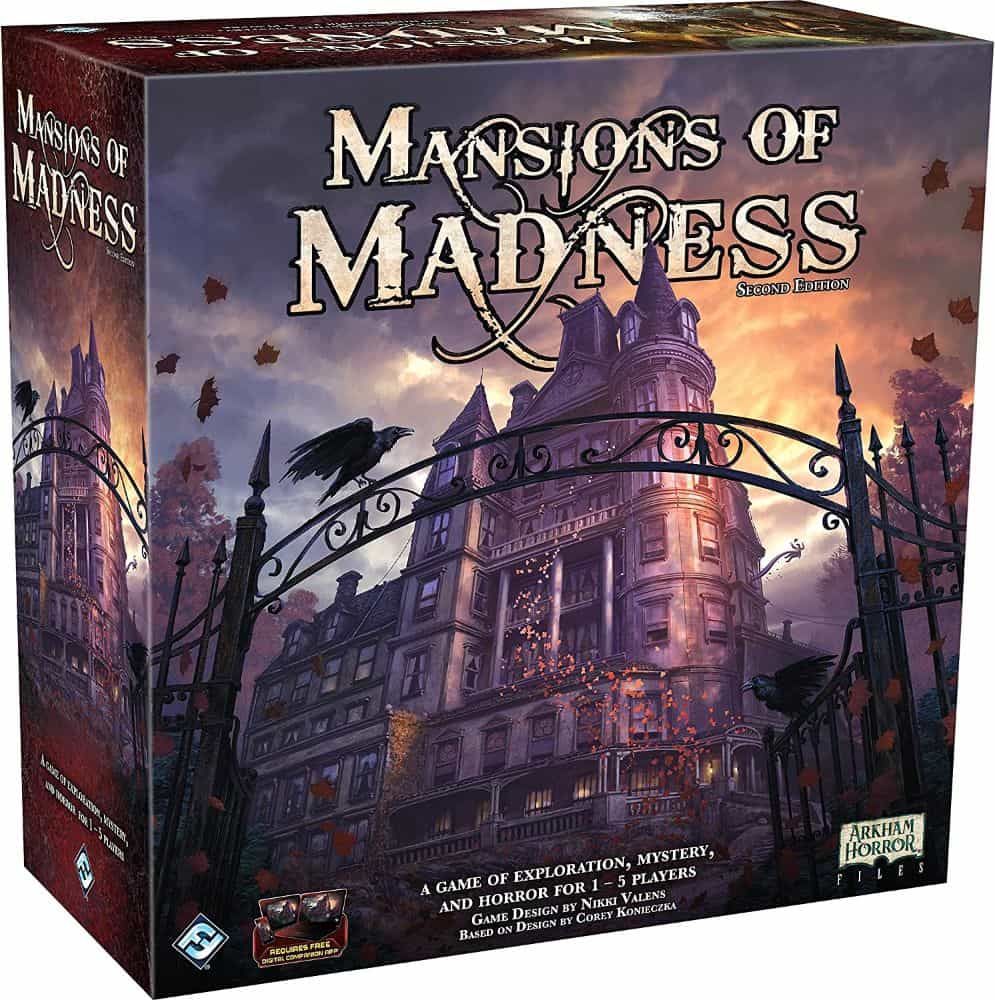
Maybe the latest version of your favorite role playing game will incorporate a large language model. It could make epic-sized games like Descent more accessible to people.
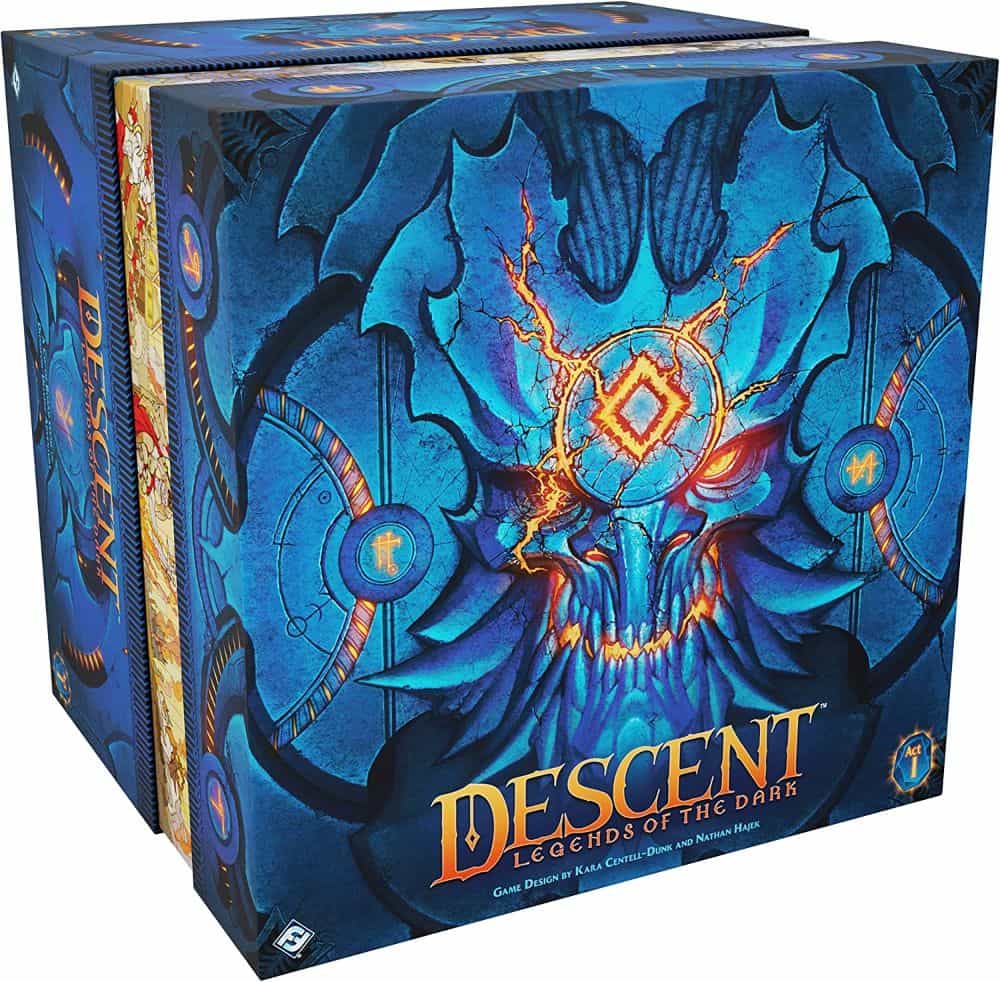
Here are some more specific ways that I found AI could affect your tabletop gaming experience.
ChatGPT AI and TableTop Miniature Gaming
As of right now, I think ChatGPT and other large language AI models are best suited to RPG tabletop games, rather the miniature gaming space. As you’ll see below, this is due to the simple mechanics of gameplay.
Your average TTRPG like DND or Pathfinder have always relied on storytelling a narrative engagement with the imaginary world. In this sense, “words” are royalty. And, AI technology based on human language would naturally provide you with the most creative and engaging experiences.
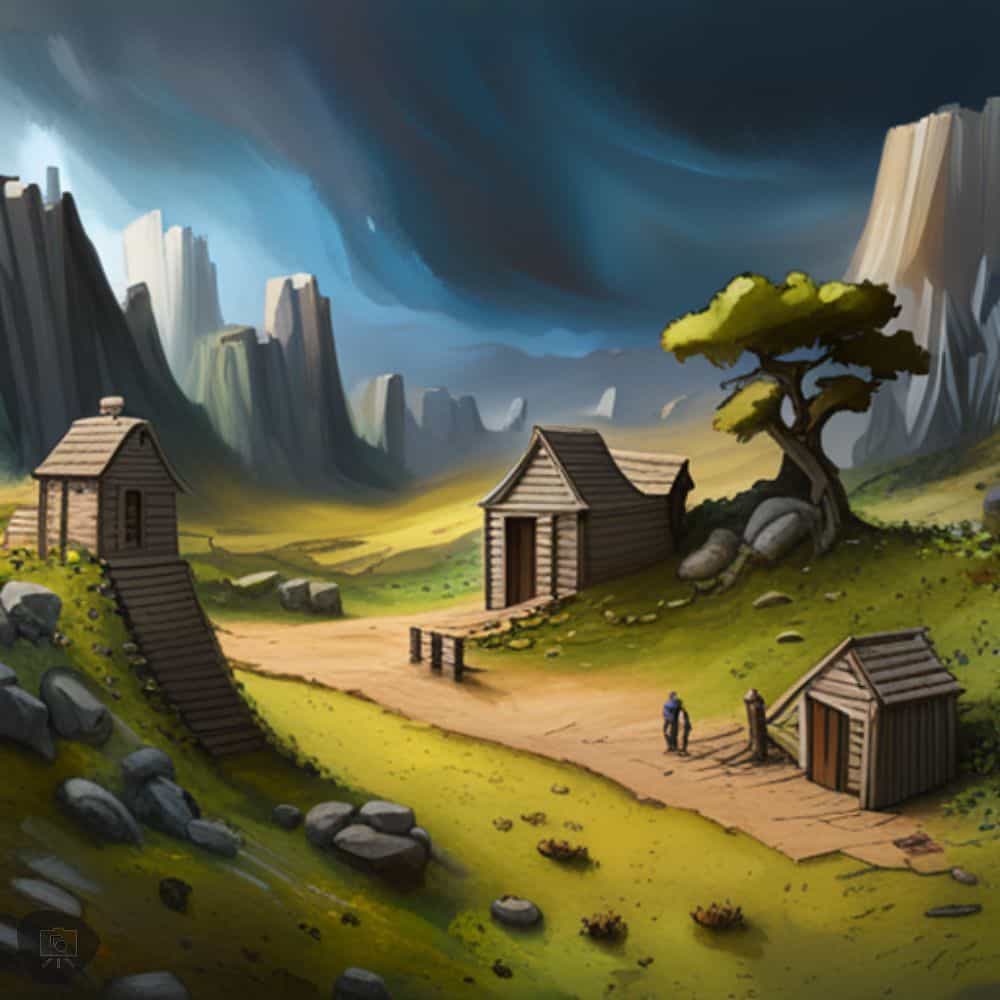
With miniature wargames, those played on tabletop landscapes, AI would have fewer opportunities to really shine. This is due primarily to the fact that they are about simulating tactical battles, not telling stories.
Nonetheless, AI has become so powerful that in either case, it may soon start to make an impact as well.
AI in Role-Playing Games
The magic of tabletop role playing games (TTRPGs) lies in their blend of narrative, character development, and player interaction. ChatGPT or a similar AI Chatbot can enhance these aspects in the following ways:
- NPC Creation: ChatGPT can be used to generate complex non-player characters (NPCs) with detailed backstories, personalities, and motivations. This can add depth to the game and reduce the amount of prep time for game masters. Most people have ideas for how imaginary characters should behave, but the writing it takes to create depth often requires a lot from our experience and takes time. AI writing is often quite good at generating human-like patterns that you would want to find in a convincing NPC.
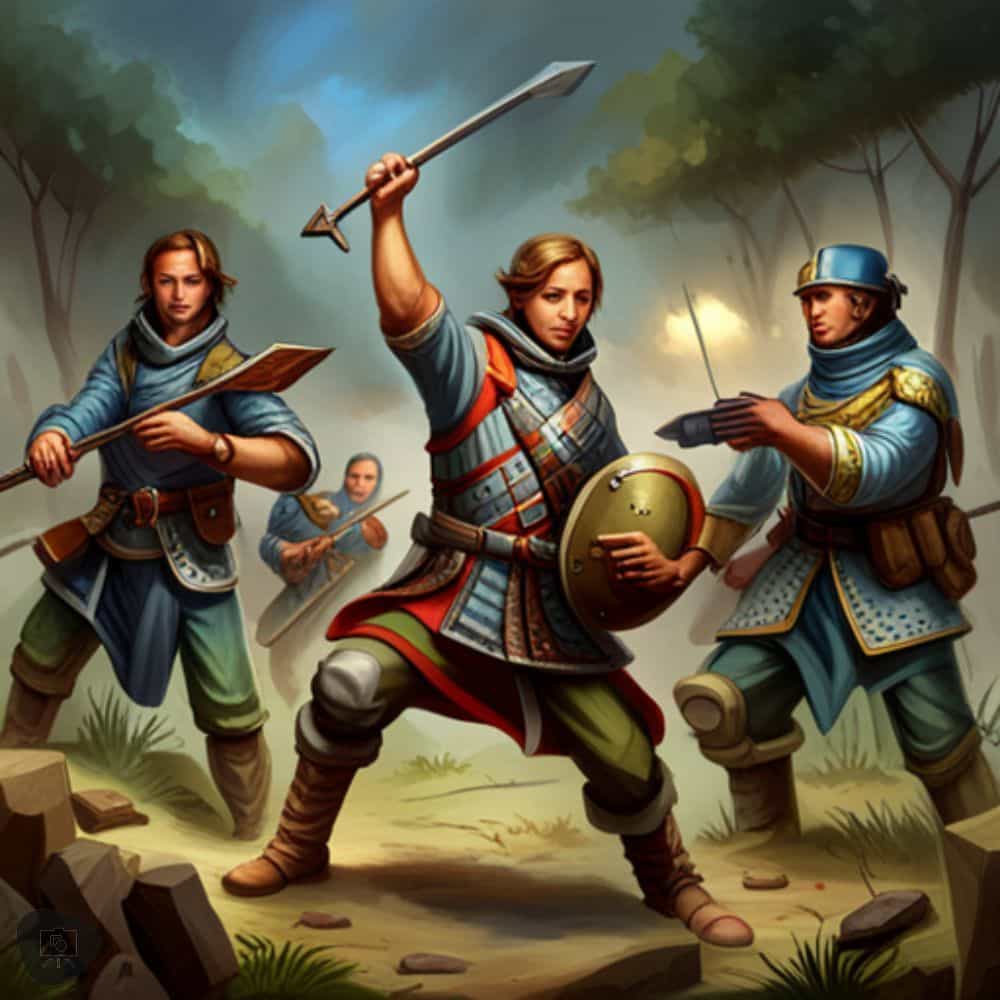
- World Building: ChatGPT can assist in world-building by generating descriptions of cities, landscapes, or cultures. It can also create histories and mythologies that give depth to the game world. Sure, you could expect some of these ideas to be cliche. But with the right prompt and editing, your world could be as unique as you imagine.
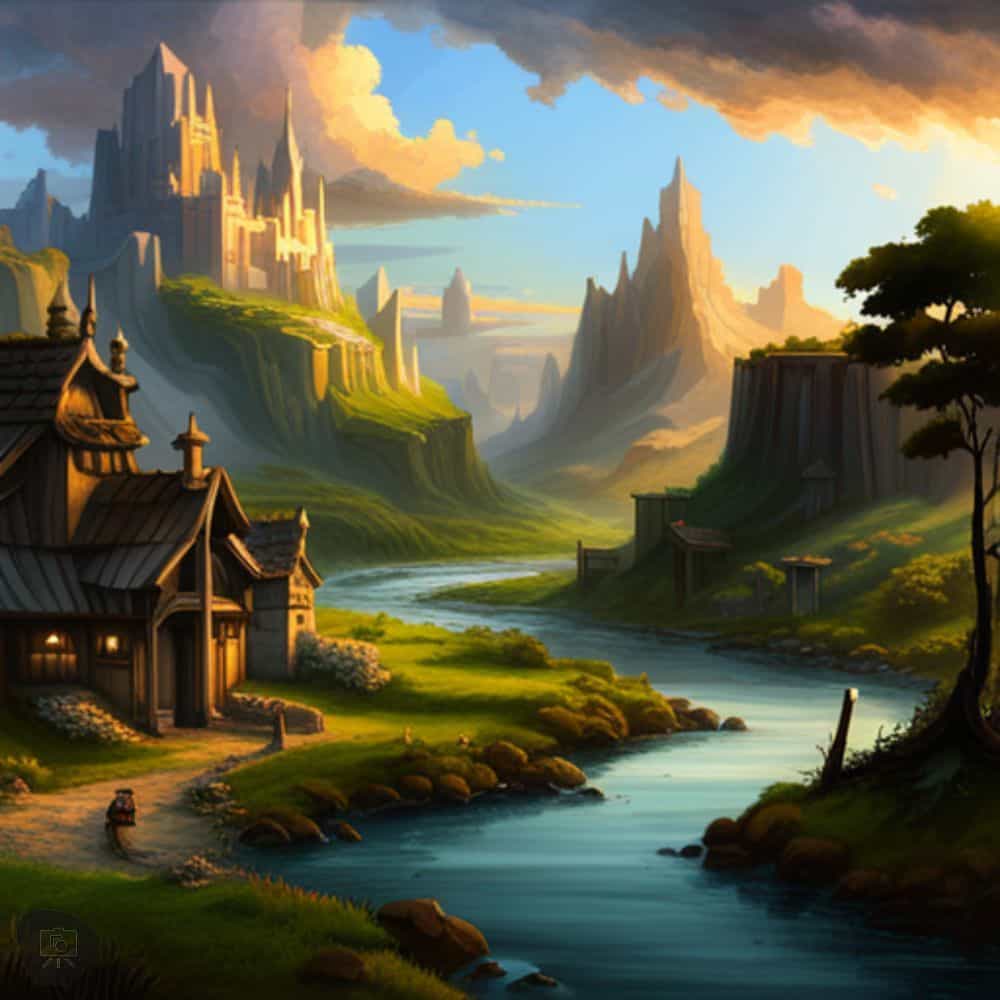
- Rule Clarification: Players can ask ChatGPT to clarify complex game rules or mechanics. It’s a quick way to get answers without having to sift through rulebooks. Players who want a fair game can rely on AI to help lead them through the rules, even poorly written ones, allowing gamers to find an answer with an helpful interpretation that makes sense to all parties.

- Adventure Generation and Plot Development: ChatGPT can generate unique adventure scenarios, including plot hooks, dungeons, quests, and challenges. This can be a great tool for game masters who need some inspiration. The process of creating a plot, for example, could require quite a bit of knowledge from the GM or DM. Rather than bookkeeping all of that information; this potential use of AI would liberate a gamer from some of the more tedious parts of starting and maintaining the storyline.
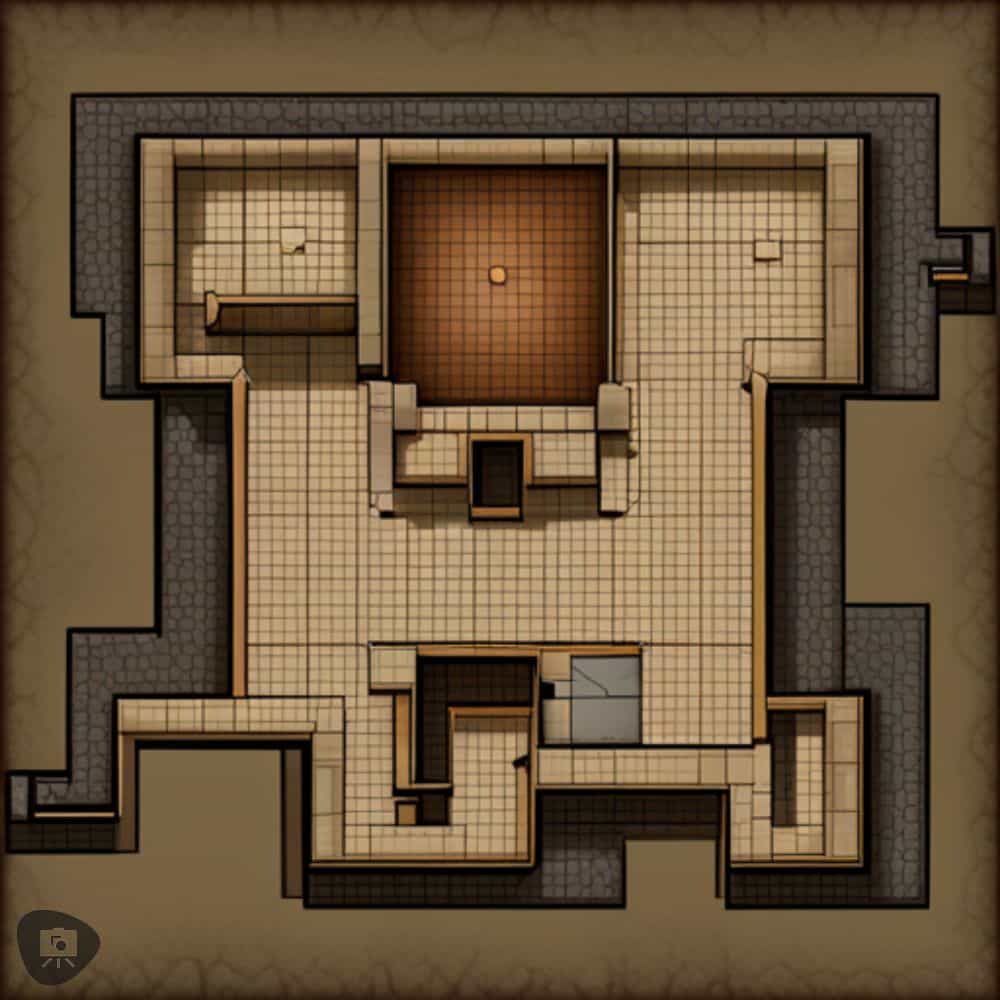
- Real-time Dialogue: While I think this has a way to go, this is perhaps one of the most intriguing ways to use AI. Although not perfect, I find that ChatGPT can already be used in real-time to simulate NPC dialogue. Here, you just need to make sure you prompt the chatbot to write out the entire script. Make sure you leave room for yourself (as the GM) to improvise. Overall, this can help make interactions more dynamic and engaging, particularly for game masters who find it challenging to juggle multiple NPC personalities. AI models, in fact, are the perfect idea and conversational generators.
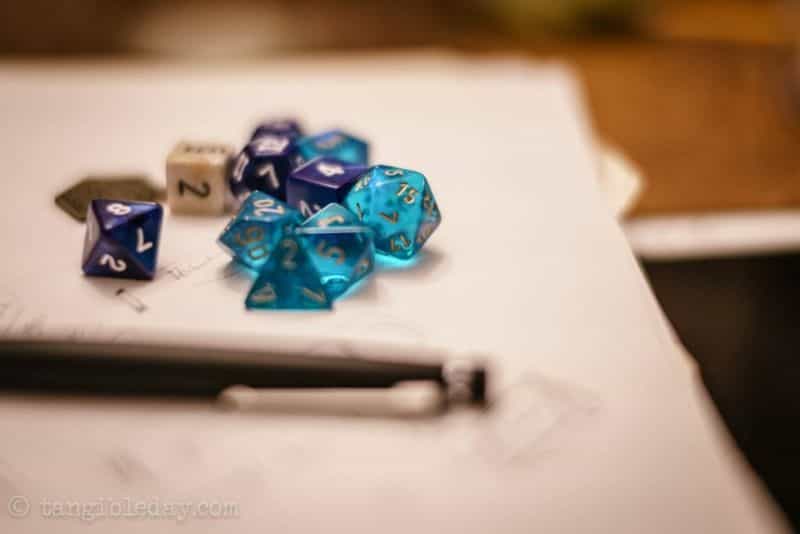
- Campaign Journaling: ChatGPT can be used to transcribe game sessions, creating a detailed campaign journal. This can be a fun way to look back on past adventures and keep track of key events and decisions. One of the best tricks I’ve used with AI is to copy-edit my poorly written notes of a gaming session. Sure, there are words it doesn’t know, but it can organize a discombobulated body of text into an easy-to-read journal entry.
RELATED: HOW TO PHOTOGRAPH BETTER BATTLE REPORTS AND RPG NARRATIVE CAMPAIGNS
- Item and Monster Creation: ChatGPT can help generate descriptions for unique magical items or design terrifying new monsters. It can also offer balance suggestions based on existing game rules. For instance, you can use the ability of the AI model to use statistical models to estimate the power level of something and quickly figure out if a new item or monster might be too powerful for your game world. This could be an invaluable tool for game masters.
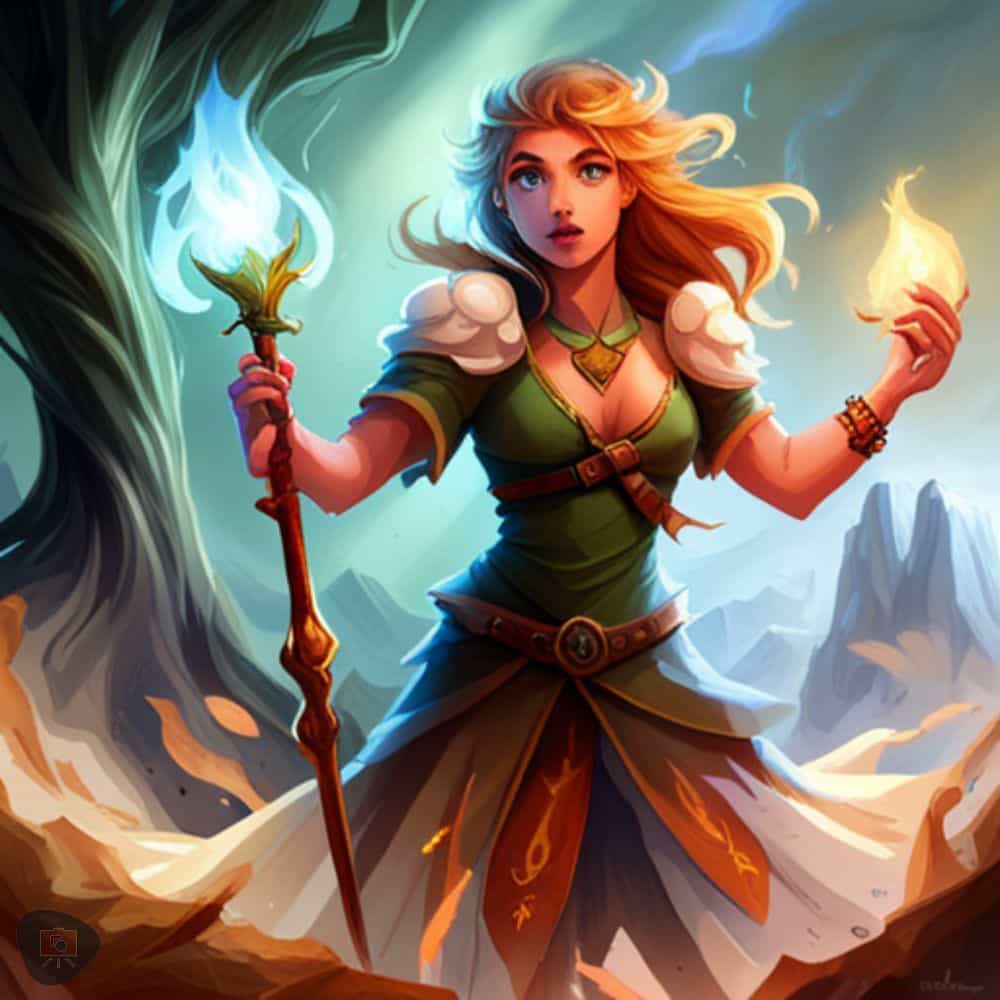
- Language Translation: In games that feature different languages, ChatGPT can be used to translate or even generate those languages, adding a layer of immersion to the game. While I hope language translation technology will become more accurate in the future, AI can still be used to supplement manual translations. It could also generate dialects and accent effects that would otherwise require extensive research. By leveraging the power of artificial intelligence, game masters can create deeper worlds, richer characters, and more interesting adventures.
- Puzzle Design: ChatGPT can be used to create unique puzzles or riddles for players to solve, adding an extra challenge to their adventures. Create both the query and the answer, instantly.
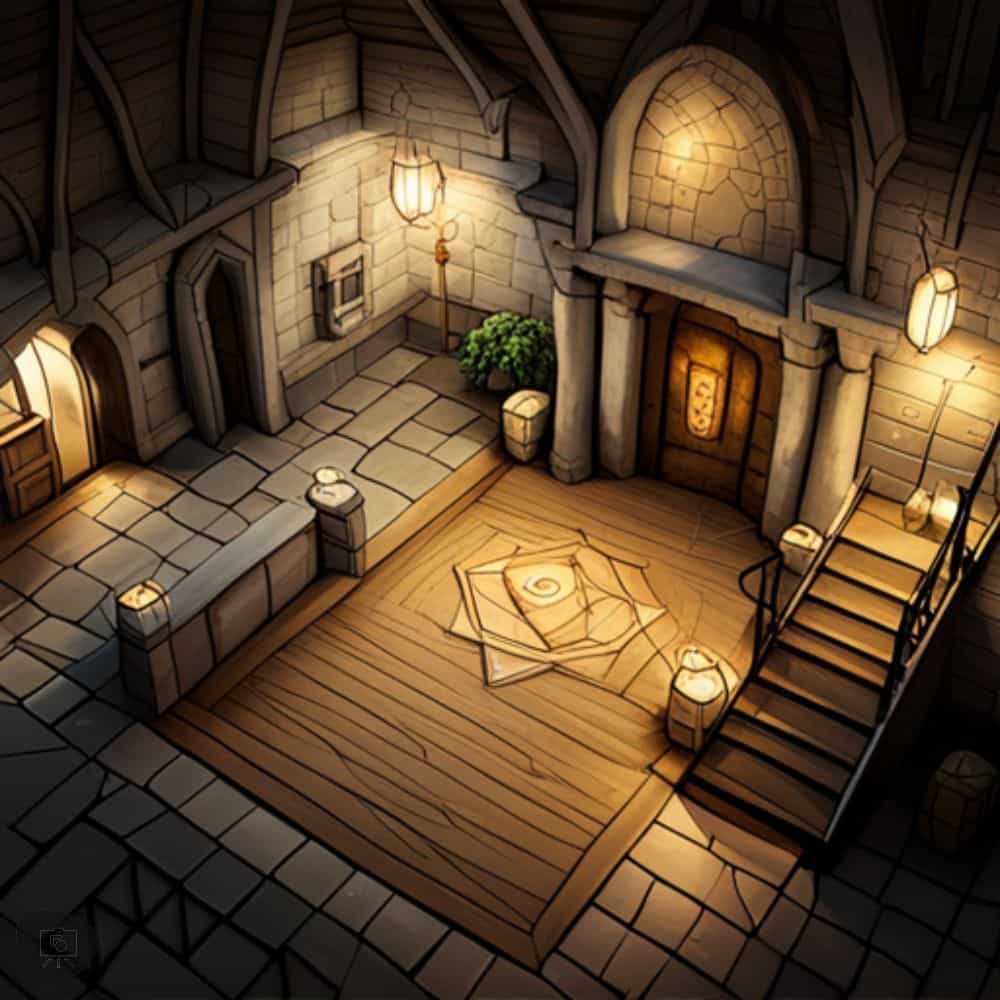
- Character Creation: I love this feature! ChatGPT can assist in character creation, generating character backstories, personality traits, goals, and even suggesting classes or races that might be a good fit.
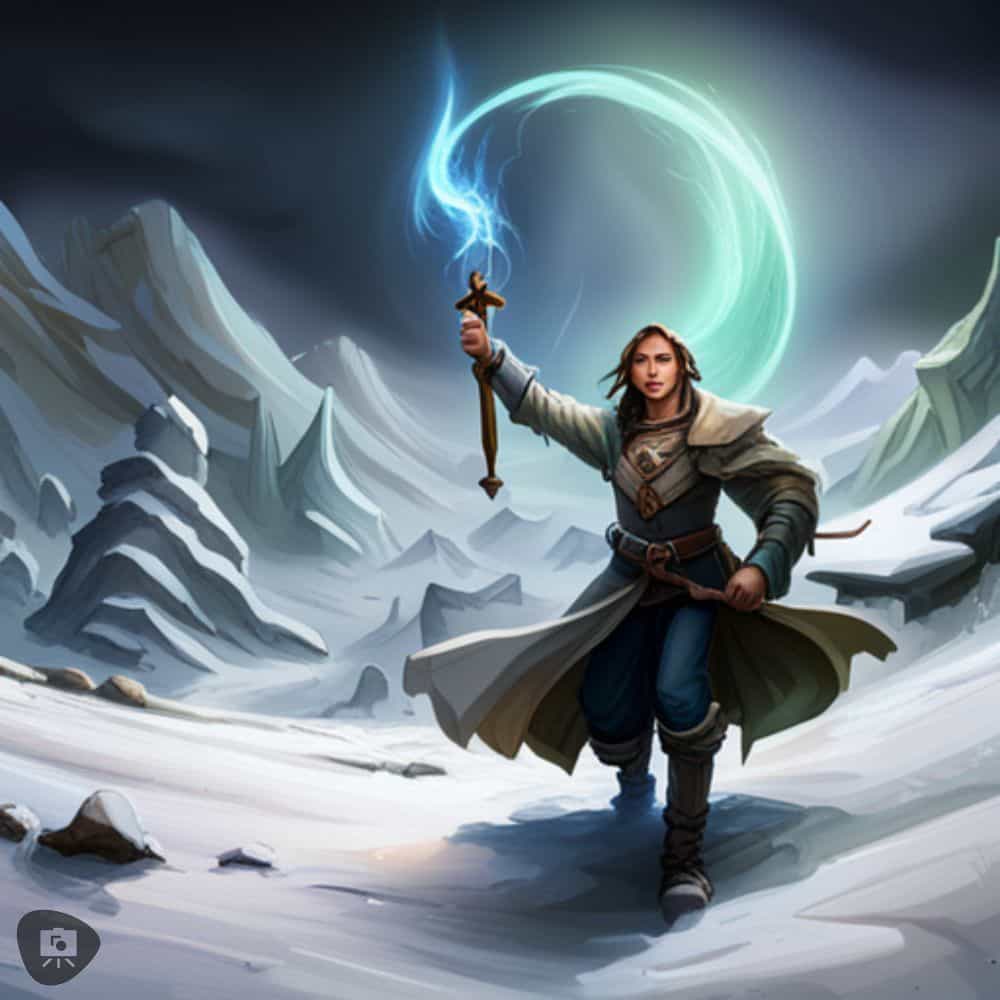
Because an AI Chatbot works with human-created data, it can be a valuable tool that allows you to test your ideas and art with a few specific prompts. For example, I’ve asked ChatGPT to create a script of two NPCs talking to reveal a campaign plot for my players to discover.
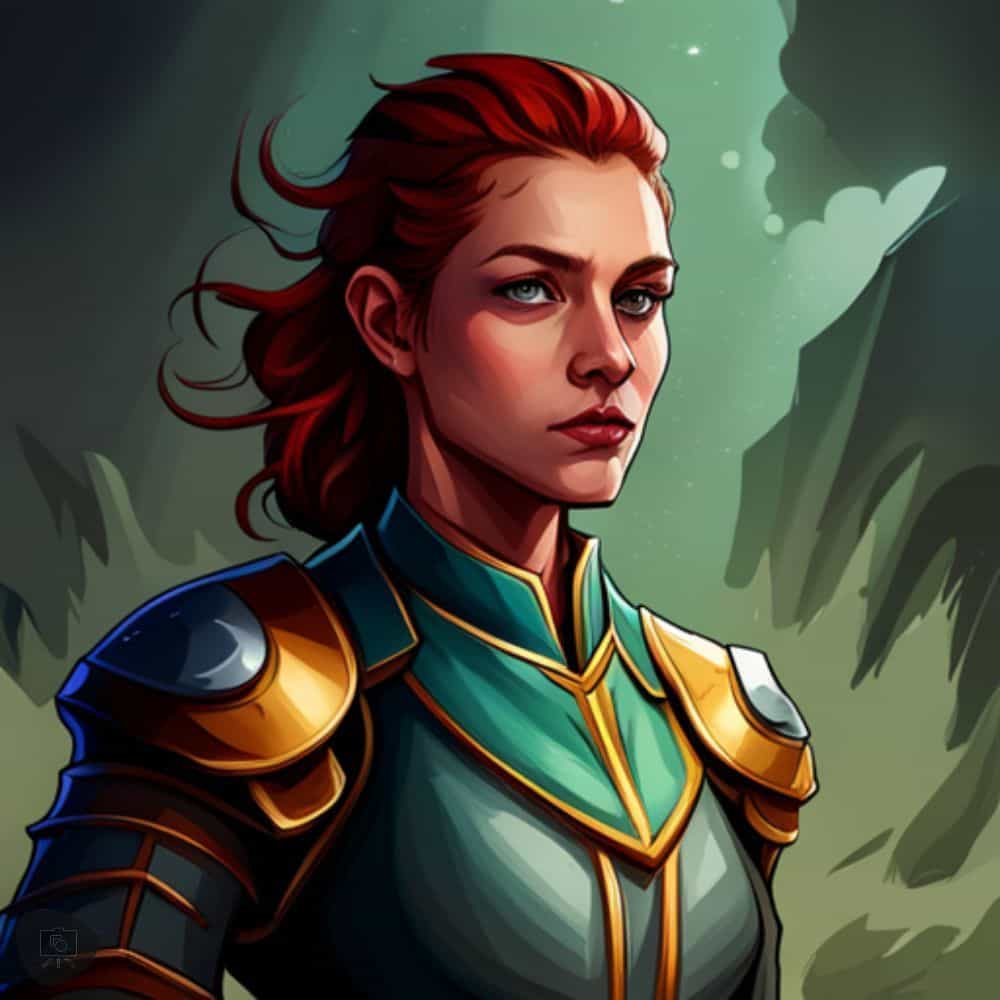
The AI-generated dialog worked so well because the system was pre trained to mimic the natural conversation of humans.
And, the cool thing is that you don’t need to have other humans interacting with each other; you can ask ChatGPT to recreate a conversation in a fantasy language, e.g., C3-P0 talking with R2-DR (think Star Wars aliens speaking with people).
AI in Miniature Wargaming
I’ve been a miniature tabletop wargamer for years and there are many good reasons miniature gaming is so popular! Here are some ways that tabletop miniature wargaming can benefit from the integration of AI:
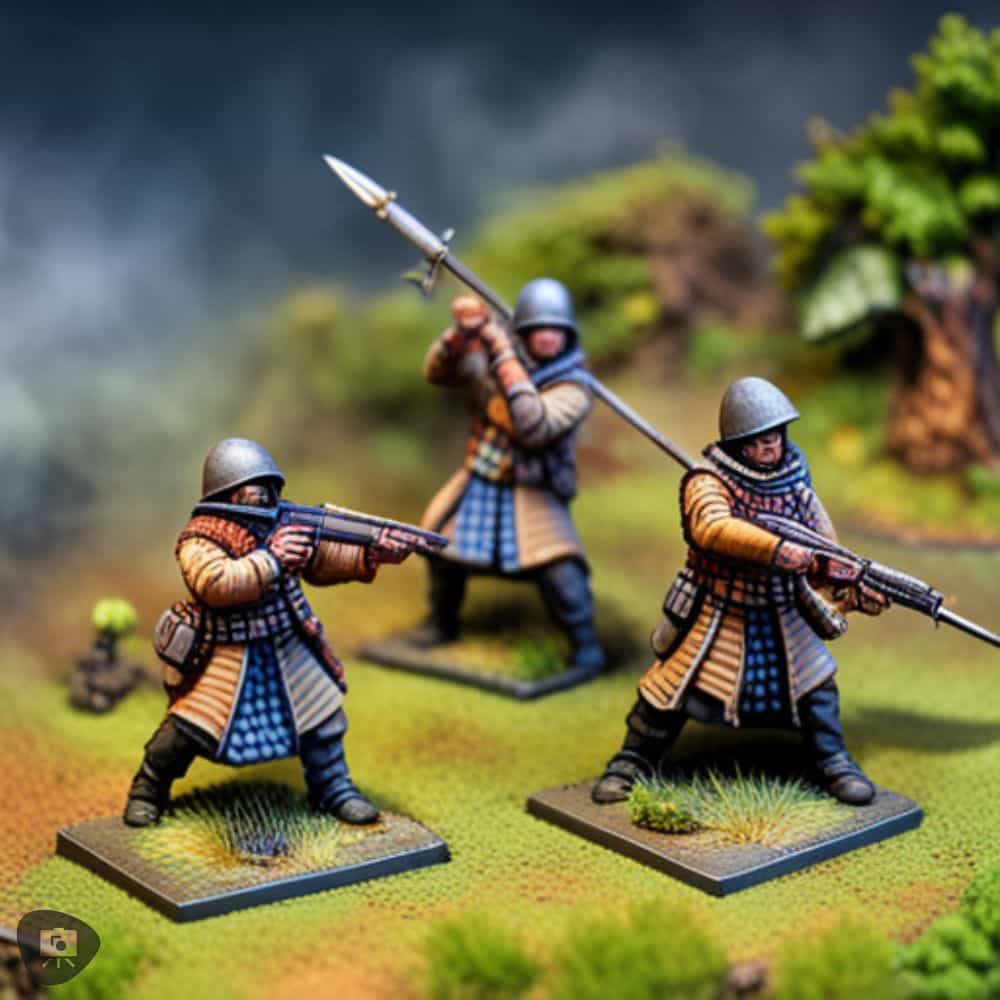
- Tactical Advice: Perhaps the most obvious use of AI in wargaming is for strategic and tactical advice. AI can analyze the current situation on the board and offer suggestions based on the game’s rules. While ChatGPT may not be the right tool for this as a text-based AI model, this day is coming. Think about it from the perspective of a beginner who is still learning the ropes, or for seasoned players looking for a new perspective. AI could be your “Mentat“.
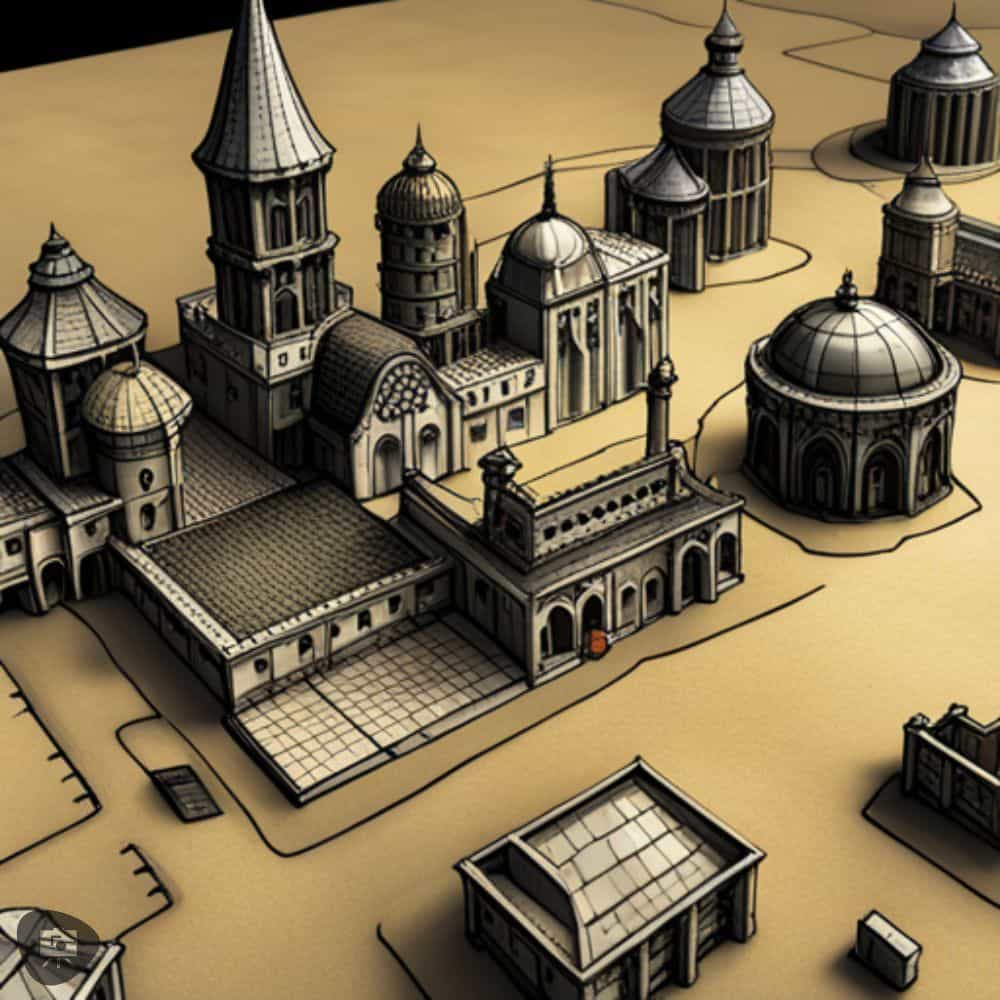
- Scenario Generation: There will be a day when you can upload and feed AI your favorite game’s rulebook, and inquire about scenarios you want to play. Simply put, whether you’re looking for a quick skirmish or an epic campaign, AI could work to generate unique scenarios with complete oversight regarding objectives, terrain setup, and special rules. Imagine AI taking over the entire atmosphere of your game world, which frees up your time and imagination to immerse yourself in the gameplay at hand.
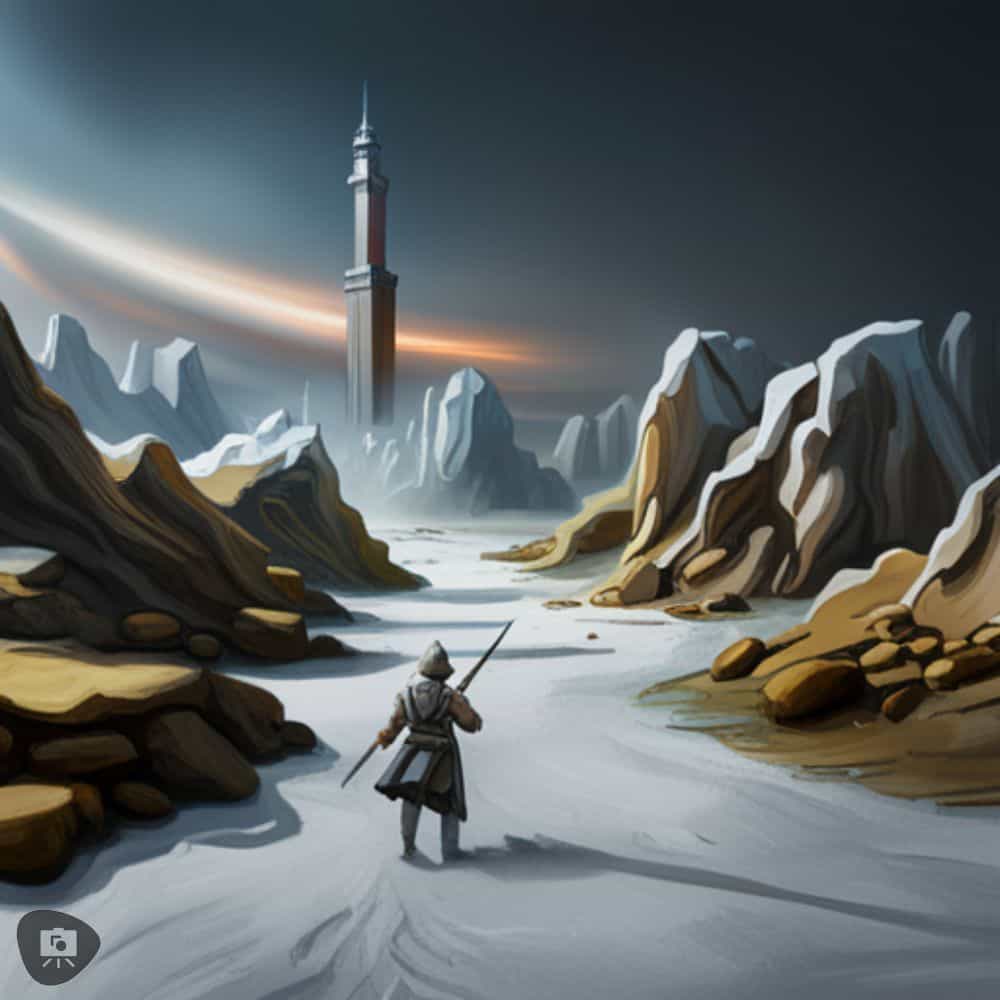
- Army List Building: Some gamers may find this meta enjoyable, which suggests that AI would interfere with the creative and tactical process of army list building. But, whether you want it or not, your competitors will be using this powerful tool. Here, AI could be used to help construct an army list for a game in a fraction of the time it would take for a human player. The AI model could use existing rules to assess what selections will work best during different scenarios and offer advice on which units you should pick up or leave at home. AI might even provide ideas for a balanced force that you may not have considered.
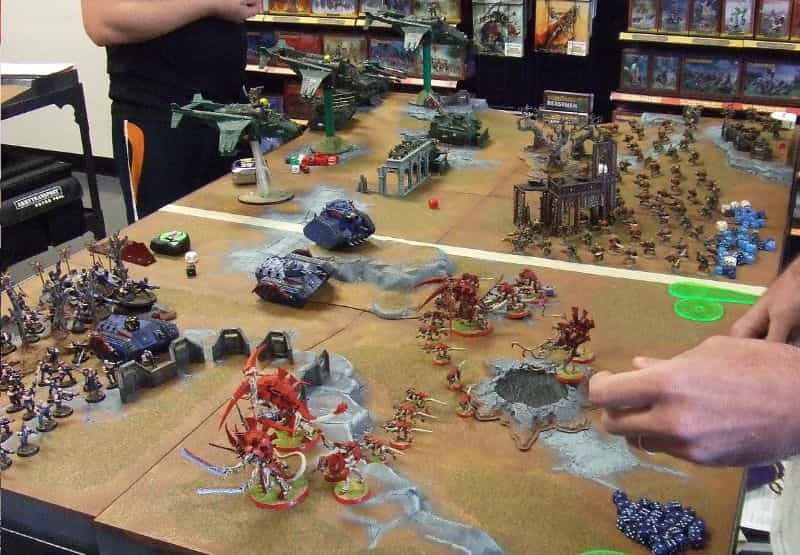
- Rules Clarification: Again, this is one of the best uses of ChatGPT. Similar to its use in TTRPGs, the AI model can be asked to clarify complex game rules or mechanics. It’s a quick way to get answers without having to pause the game and sift through rulebooks. One day soon, I hope, you’ll be able to access entire rulebooks without having to manually copy/paste the AI model the rules–Yes, I’m aware plugins may exist that let you access the PDFs or other rule documents. But, the key is to have the game companies themselves integrate AI into their systems.
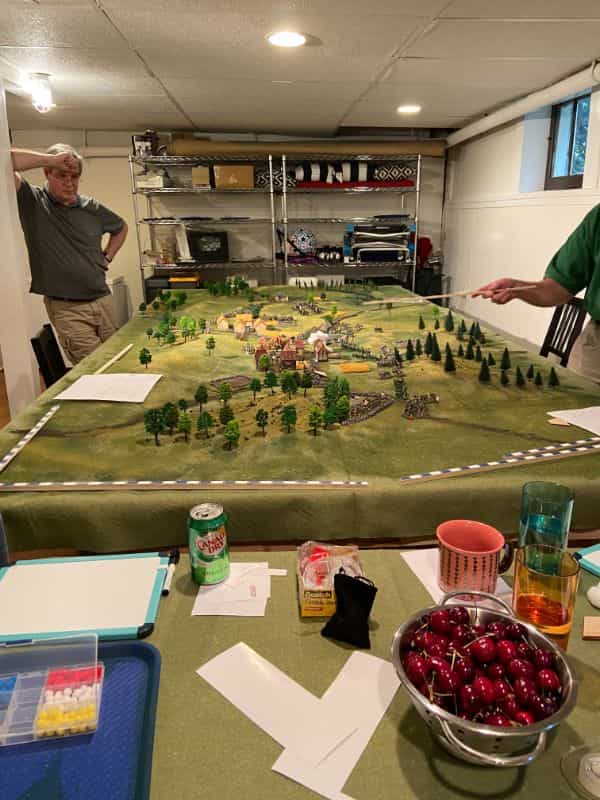
- Painting Guides and Tips: Painting miniatures is an integral part of the wargaming hobby. ChatGPT can generate painting guides based on descriptions or references to help players bring their miniatures to life. Additionally, it can provide tips and techniques for more advanced painting concepts. I went into more detail about using AI in miniature painting in this article.

- Terrain Generation and Layout Suggestions: A well-laid-out battlefield can significantly enhance the wargaming experience. AI would have a harder time in this case, but there will be a day when this would be possible. And, I’m talking about using this method using real, tangible scale model terrain, not digitally or virtually. The trick I envision would be for AI to create terrain layouts for players so that their battlescapes are not only balanced, but interesting. No more symmetrical tabletop boards that are used for balance purposes. AI could take army composition, work out statistical models for pros and cons of how the landscape would work into the possible outcome, and recreate the “wargaming balance” naturally, and organically.
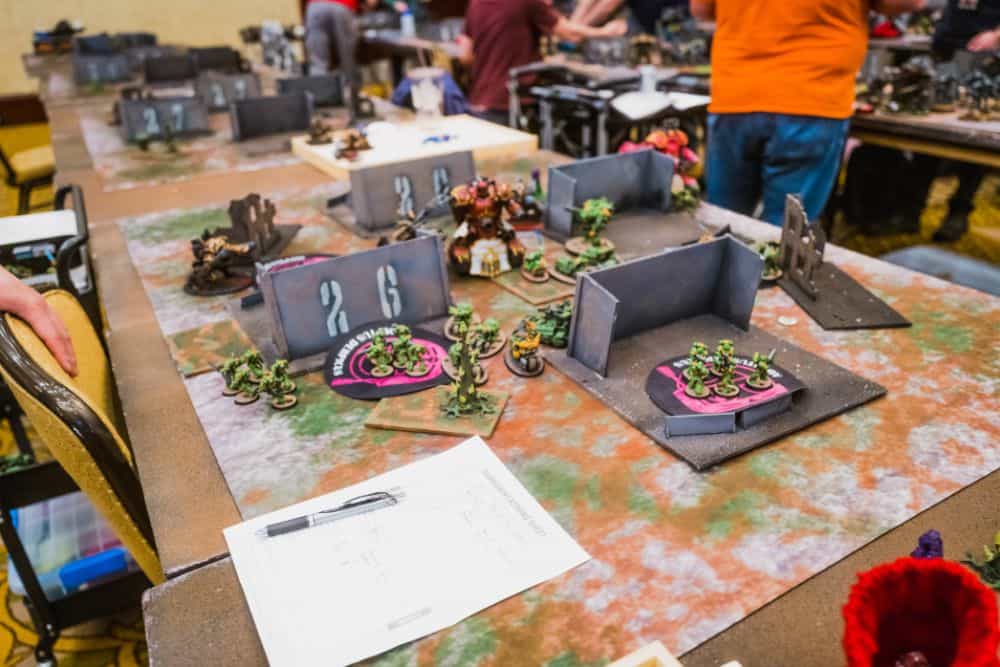
- Post-Game Analysis: A bit more nuanced, but still useful for the discerning competitive player. When I used to play Starcraft competitively, I read battle reports all the time. I studied. With the advent of YouTube, of course, any of us can follow how “professional” gamers deal with certain situations. While I don’t see this happening easily just yet, as a computer would require quite of bit of detail and information to provide you with helpful feedback on your game, this could become a mainstay in the future of wargaming. AI could provide you with stat-based feedback, post-game analysis, and even deeper insight into your overall strategy. Did you see that scene in Rocky where he watches his fight with Apollo Creed over and over again? That’s what I’m talking about here. You may even get to “rewind” your games to try a different tactic, as your real human opponent could be “simulated” in your post-game review.
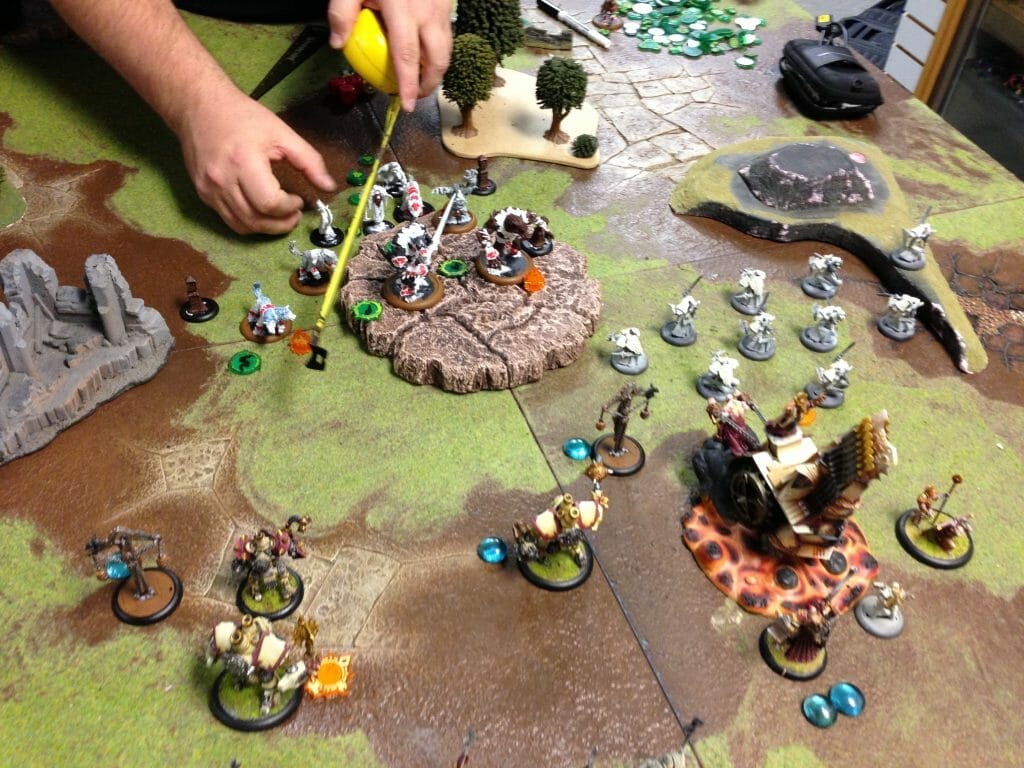
Artificial Intelligence: Benefits and Limitations
It’s not all roses and high-speed computers. AI also has its limitations that go along with its benefits.
As Ursula Le Guin, famed Fantasy author of the Earthsea novels wrote, “When you light a candle, you also cast a shadow” (source)–AI is no different, and while its potential is nearly limitless, it’s important to remember that there are drawbacks too.

Benefits of AI in Tabletop Gaming and Miniature Wargaming
The capabilities of AI offer substantial benefits in the context of tabletop and miniature wargaming (source).
- Enhanced Gameplay: AI can greatly enrich the gaming experience. By incorporating dynamic NPC interactions, realistic dialogue, and AI-driven digital characters, it can make the game more immersive and complex. It can also aid in generating unique scenarios and encounters, making each game session a fresh and exciting experience.
- Improved Efficiency: AI can streamline the game setup and flow of gameplay. It can automatically generate game scenarios, add dynamic and random events, optimize character interactions, and even assist in managing in-game book keeping. This can make game preparation less time-consuming and more efficient, freeing up more time for the actual fun stuff.
- Real-Time Interaction: AI can provide an adaptive gaming experience and enable real-time interaction with other players or NPCs. This brings a new level of intensity and engagement to the gameplay, making it more immersive and interactive.
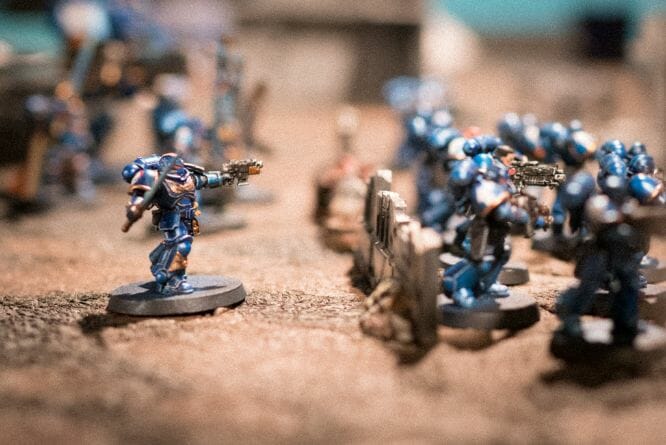
Limitations of AI in Tabletop Gaming and Miniature Wargaming
Despite the benefits, there are also limitations and challenges that come with the integration of AI in tabletop and miniature wargaming:
- High Costs: The implementation of AI in miniature gaming could be expensive for company developers, even the independent solo game developer (which may pass down to players). It requires a considerable investment in time, financial investment in hardware and software. This cost factor can pose a significant challenge for many game developers and hobbyists.
- Lack of Flexibility: AI-driven gaming can sometimes lack the flexibility that traditional non-AI gaming offers. The AI operates within the parameters set by its developers or users, which can limit the scope for spontaneity and impromptu creativity that often define tabletop gaming experiences. For example, in my experience, ChatGPT often produces cliche or rote encounters and scenarios that you’ve seen over and over.
- Security and Privacy Issues: The integration of AI in gaming can potentially expose players to security and privacy risks. The data generated by the game can potentially be used to track players’ actions, habits, and preferences, which raises legitimate concerns about data privacy and security.
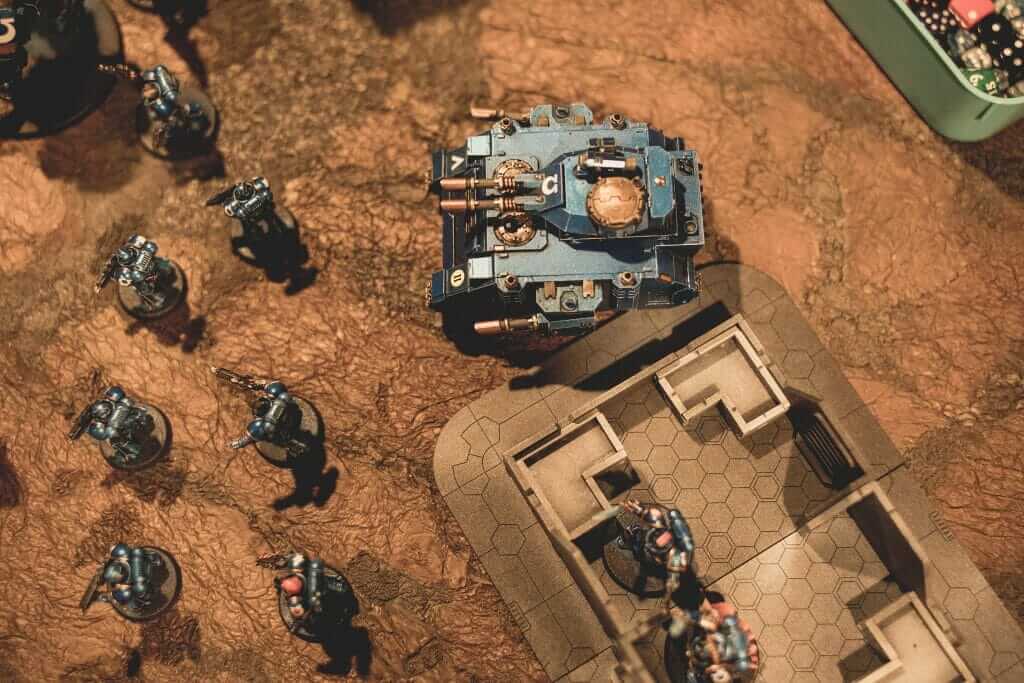
Pros and Cons of AI in Miniature Games
Pros
- Enhanced Gameplay: More immersive and complex games
- Real-Time Interaction: More intense and interactive gameplay
- Improved Efficiency: Streamlining of preparation and gameplay
Cons
- Lack of Flexibility: Limited scope for spontaneity and impromptu creativity
- High Costs for Development: Significant investment required in time, hardware, and software
- Security and Privacy Issues: Potential risks related to data privacy and security
An AI Program: More Than a Tool?
I think I only scratched the surface of how AI will change the way we engage with hobby tabletop miniature games. AI is fast becoming like an actual helpful “person”… Or, put it another way:
- A Creative Collaborator: AI isn’t just about crunching numbers or following rules; it’s also capable of creative tasks. AI can weave elaborate narratives, generate unique characters, and even create intricate world descriptions. These capabilities can turn it into a collaborative partner in storytelling, adding an extra layer of depth to your games–even parts of your life that you may want to gamify.
- An Adaptive Tutor: AI, with its ability to sift through vast amounts of information quickly and accurately, can be an excellent tutor. Whether you’re trying to understand complex game rules or looking for strategies to improve your wargaming skills, AI like ChatGPT, Bing, or Bard can provide real-time advice and clarifications. It’s like having a seasoned gamer right beside you, ready to answer your queries. Thinking more broadly, I see the use of AI like this in many other areas; like cooking up a recipe that you don’t quite understand or want to adjust for your liking.
- A Versatile Assistant: A personal assistant is someone who helps a person manage their day-to-day life. AI is already doing this in many ways, like scheduling meetings and providing reminders or notifications about events. With the right programming, AI could help you plan out your wargaming scenarios from A to Z: developing strategies, tracking inventories of miniatures and paints, helping with terrain setup and layout, and so much more. As a busy parent, I see this as the ultimate tool for freeing up my time to do the fun things I enjoy most.
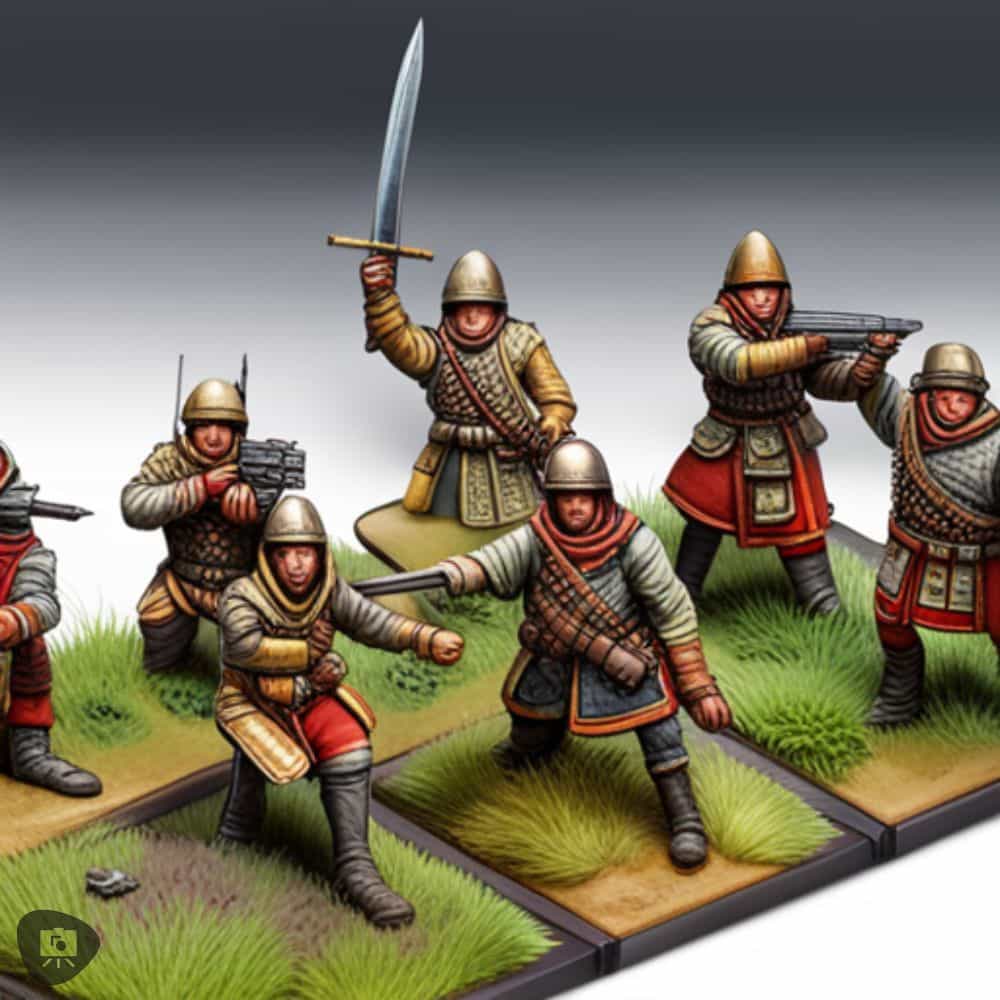
- A Source of Inspiration: When you’re in need of fresh ideas for your game, AI can be a source of inspiration. It can suggest new plot twists, help design challenging puzzles, and even come up with innovative mechanics. With AI, you’ll never run out of new ideas to keep your games engaging and exciting. I’ve already begun using AI to help me rewrite battle reports and summarize my DND campaign notes.
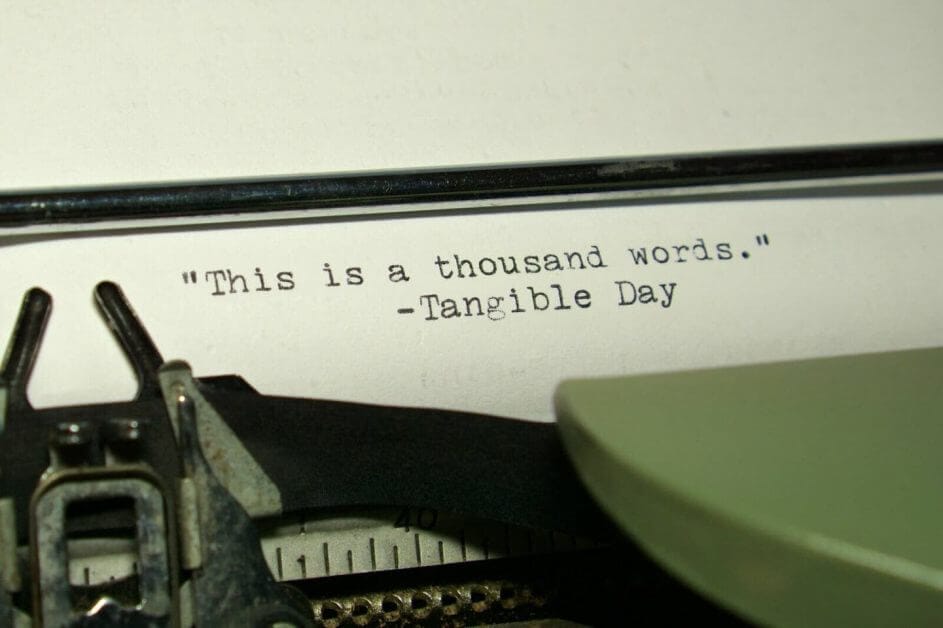
Did I Miss Anything? Are You Collaborating with AI in a Role Playing Game? A Board Game?
Indeed, I’m sure I missed areas where AI could interfere, impact, or improve our tabletop hobby gaming experiences. I did my research (even AI-powered), but my future sight is limited because I’m just one human perspective.
If you have more ideas that you’ve thought of that AI could make games better, or even worse, let me know! I really want to know, as this topic has piqued my interest and I’m always eager to learn more.
Find Your Base Color Scheme
Conclusion
There are so many questions in this unknowable future with AI. I’m for one am not waiting around to find out what comes next. I’m doing my homework to peer behind this weird future.
In short order, miniature tabletop gaming won’t be the same. AI will bring us closer together, introduce us to more interesting characters, provide invaluable advice and assistance, and stimulate our imaginations. And at the same time, there is horror lurking in the shadows.
I’m not 100% certain we want to fully embrace AI in all facets of our lives. But as a gamer, a hobbyist, I’m seeing quite a few advantages and emerging trends that will be hard to ignore.
This I’m sure about: As we continue to explore this new frontier, I would love to see how we can all strike a balance between AI-enhanced gameplay and that human imperfection that forces us–compels us all–to stay creative.
It’s the thrill of discovery, of making happy accidents, and mistakes that makes the hobby tabletop games so special. What do you think?
I hope you stick around as I explore other developments in the miniature gaming space! It’s changing fast. Stay up to date with me.
Leave a comment below! Thanks for reading!


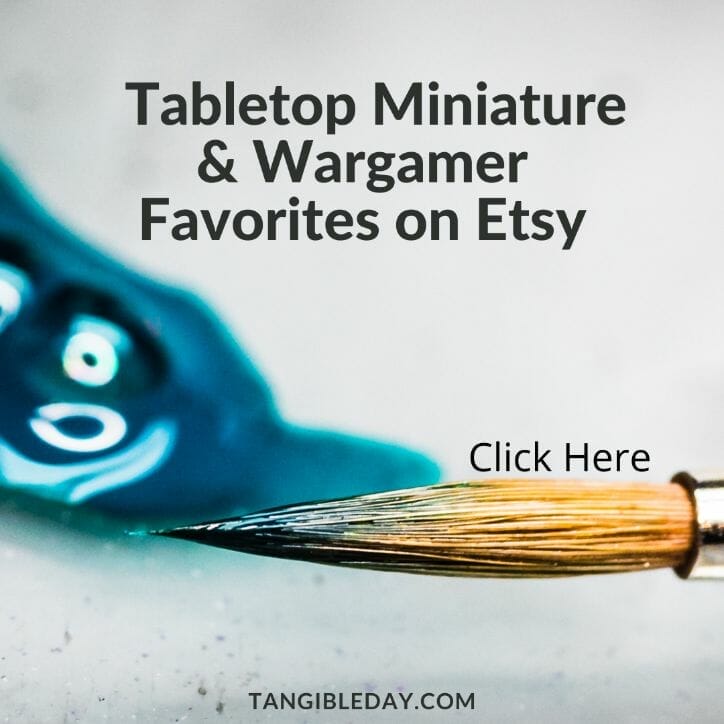
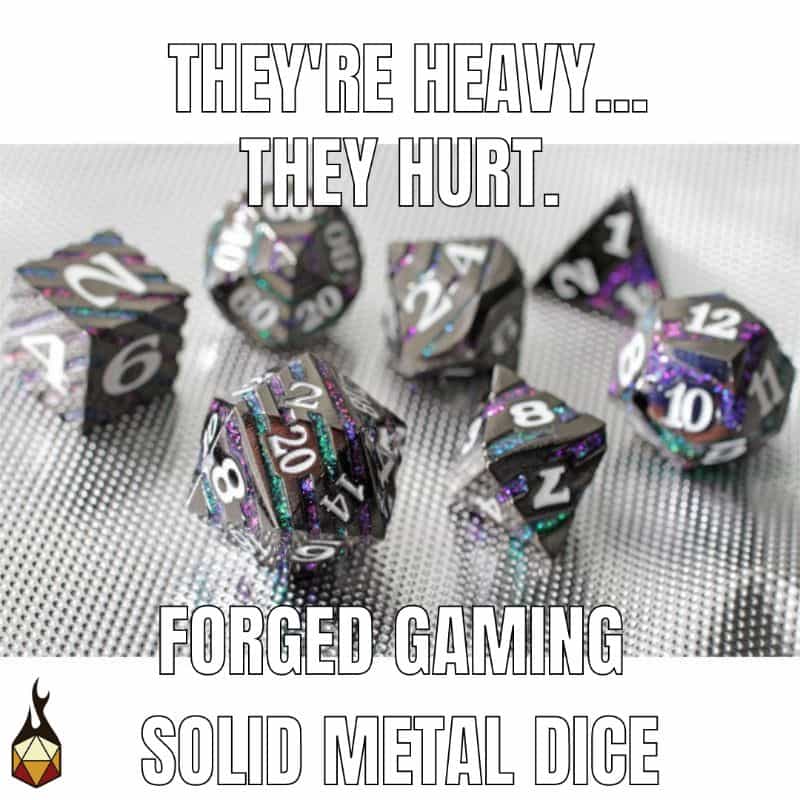

Tangible Day on YouTube (Miniatures and More!)

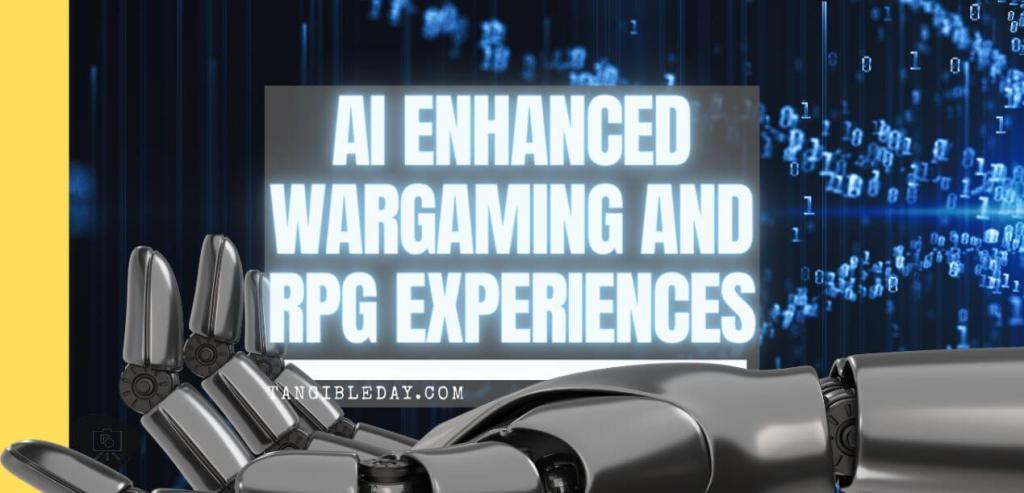
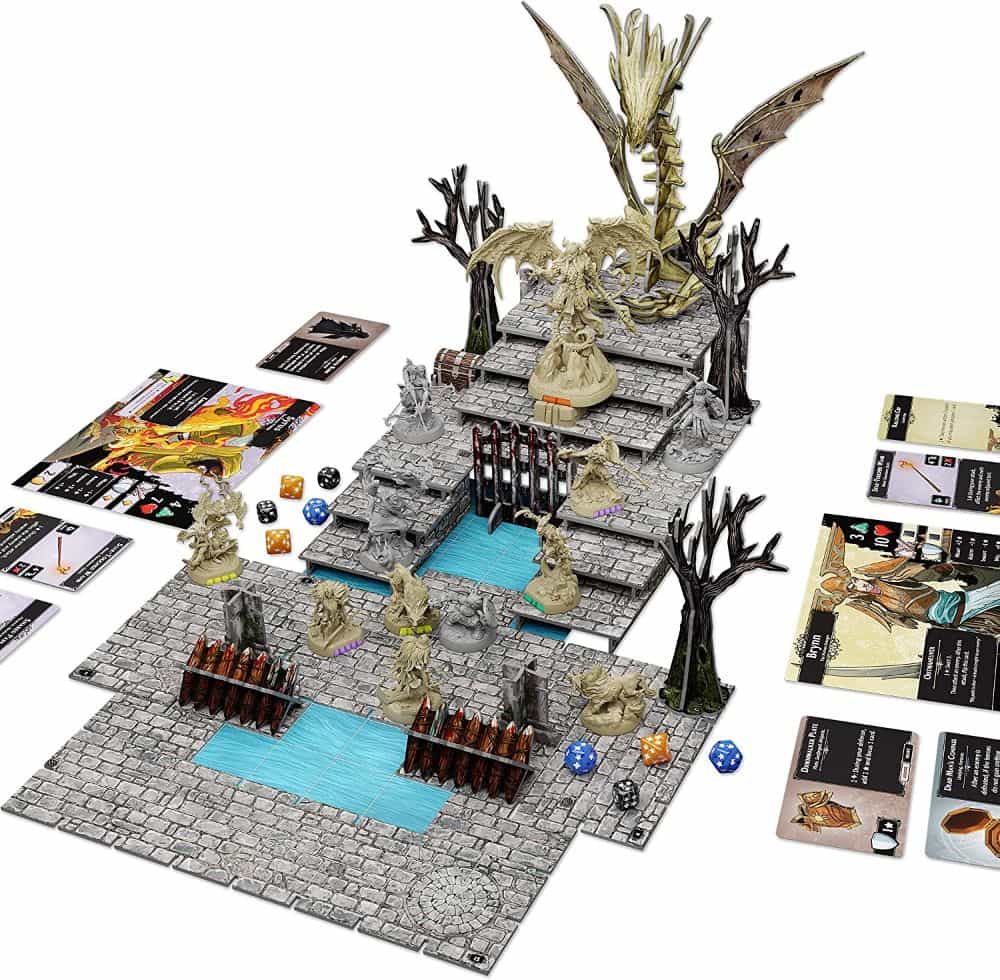
Pingback: AI Enhanced Wargaming and Tabletop RPGs (Tips and Uses) - Toy Newz